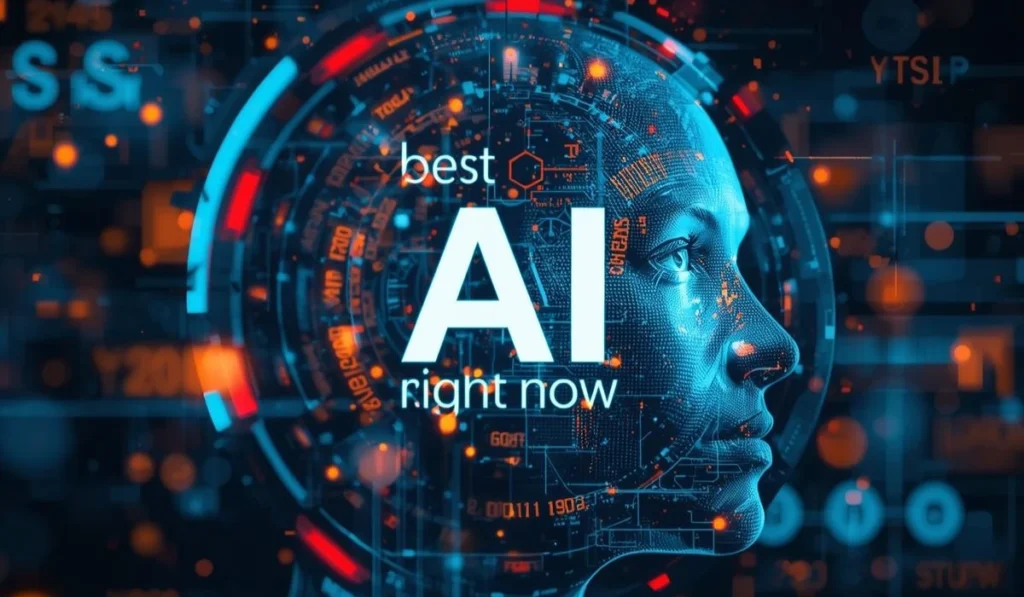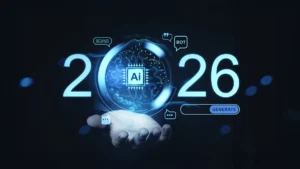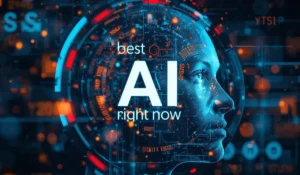Artificial intelligence (AI) has rapidly transformed how businesses, educators, and creatives operate, from automating tasks to generating content. Determining which is the best AI right now requires evaluating performance, reliability, versatility, alignment, and ecosystem support.
Choosing the right AI is like planning a trip to Hamburg places to visit: research, prioritize, and select based on your goals. Top models handle text, coding, summarization, multimedia, and complex problem-solving, but discerning hype from substance is crucial. Applying Google’s EEAT framework ensures the AI you choose is both reliable and high-performing.
Criteria to Determine Which is the Best AI Right Now

Evaluating AI models requires considering several key factors. Capabilities are crucial can the AI handle text, code, images, and reasoning? Accuracy and reliability are equally important, as even advanced AI can produce errors if training or alignment is flawed.
Context memory and multimodality matter too; top models can process long documents and multiple input types simultaneously. Real-world performance, integration ease, safety, and ethical alignment are also essential. Considering these factors helps determine which is the best AI right now.
Top AI Models to See Which is the Best AI Right Now
Several AI models lead the market, each excelling in different areas. GPT-5 handles writing, coding, summarization, and reasoning, supporting multimodal inputs for text, images, and data. Claude Sonnet 4.5 focuses on enterprise workflows and long-context reasoning, offering reliable and ethical outputs.
Gemini 2.5 Pro excels in reasoning-intensive, multimodal tasks, ideal for research and complex data processing.GPT-5 is best for versatility, Claude for enterprise tasks, and Gemini for specialized reasoning. Real-world adoption shows GPT-5 has the broadest ecosystem, Claude serves enterprise clients, and Gemini leverages Google’s infrastructure.
Benchmarks highlight all three, but GPT-5 leads in consistency and adaptability. Safety and alignment remain important, with Claude emphasizing ethics and Gemini focusing on reasoning accuracy.Understanding your goals is key to deciding which is the best AI right now.
Comparing Capabilities and Use Cases

When evaluating AI, versatility is often key. GPT-5 handles writing, coding, reasoning, and multimedia tasks while supporting long documents and complex workflows. Claude Sonnet 4.5 specializes in long-context reasoning and agent workflows, making it ideal for enterprise applications.
Gemini 2.5 Pro excels in advanced reasoning and multimodal processing, useful for multimedia projects and research.Real-world adoption highlights each model’s strengths. GPT-5 offers the broadest ecosystem with plugins, APIs, and developer support.
Claude focuses on enterprise clients with robust agent solutions, while Gemini leverages Google’s infrastructure for high-complexity tasks. Benchmarks show all three perform well, but GPT-5 leads in versatility, reliability, and consistency.
Safety and alignment remain important, with Claude emphasizing ethics and Gemini prioritizing reasoning accuracy. This comparison shows why understanding your goals is crucial for determining which is the best AI right now.
Why GPT-5 Leads in Which is the Best AI Right Now
Considering versatility, ecosystem support, accuracy, and safety, GPT-5 emerges as the leading choice for general-purpose applications. It supports multiple modalities, handles complex tasks efficiently, and benefits from a wide range of integrations and plugins.
While Claude and Gemini excel in specific areas enterprise alignment or reasoning tasks GPT-5 is most suitable for users seeking an adaptable AI capable of meeting diverse needs.Selecting GPT-5 is similar to choosing the primary landmarks when planning a visit to Hamburg places to visit.
Start with the major attractions that provide the most value, then explore niche options for specialized experiences. GPT-5 offers that combination: a robust general-purpose platform with the ability to handle specialized tasks when needed.
How to Pick Which is the Best AI Right Now

Choosing the right AI requires aligning your goals with the model’s capabilities. Identify the tasks you need the AI to perform, whether text generation, coding, multimedia analysis, or reasoning. Evaluate domain-specific performance, integration options, cost, licensing, and long-term support. Trustworthiness and safety are also critical consider bias mitigation, alignment, and reliability in real-world applications.
By carefully weighing these factors, you can confidently determine which is the best AI right now for your workflow. This approach mirrors planning a thoughtful itinerary for Hamburg places to visit, balancing must-see landmarks with hidden gems to create the ideal experience.
It’s also helpful to test AI models on small tasks before committing fully. Doing so reveals nuances in performance, usability, and reliability that cannot always be captured in benchmark scores alone. A hands-on approach ensures your choice is practical, effective, and tailored to your specific requirements.
The Role of Future-Proofing
AI technology evolves rapidly, meaning today’s best model may be surpassed tomorrow. Future-proofing involves selecting a platform that can adapt to new tasks, integrate updates, and maintain high safety and ethical standards.
Flexibility is essential, especially for businesses and creators who rely heavily on AI for critical workflows.Exploring lesser-known AI capabilities is like visiting off-the-beaten-path destinations when planning Hamburg places to visit.
Hidden features or specialized tools often provide a competitive advantage. Staying informed about new models and improvements ensures you maximize AI’s potential while remaining ready to adapt to technological advancements.
FAQs
Q: Are open-source AI models viable alternatives?
A: Some are improving rapidly, but they still lag top proprietary models in versatility, accuracy, and ecosystem support.
Q: Will the “best AI” change soon?
A: Yes. AI evolves quickly, so future-proofing, updates, and monitoring are essential.
Q: How should I decide between multiple AI models?
A: Match your tasks to model strengths, assess integration options, cost, and trustworthiness, and test performance in real-world scenarios.
Conclusion: Deciding Which is the Best AI Right Now
In summary, GPT-5 stands out as the most versatile, general-purpose AI, offering broad capabilities, reliability, and ecosystem support. Claude Sonnet 4.5 excels in enterprise workflows and aligned agent-based tasks, while Gemini 2.5 Pro is ideal for reasoning-intensive, multimodal applications.
Your choice should depend on your goals, domain, and priorities. By applying the EEAT framework considering expertise, experience, authoritativeness, and trustworthiness you can confidently determine the best AI. See our AI tools comparison for a detailed guide.
Like planning the perfect trip to Hamburg places to visit, combining major options with specialized tools ensures the best results. Stay updated with model releases, features, and performance reports. Tools like AI face swap showcase how AI keeps workflows cutting-edge and reliable.










